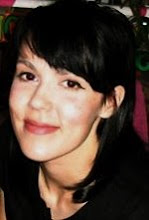It is so hard to believe that a few nights ago we were dancing in the courtyard of the Cpar office, re-playing Bob Marley over and over (and over) again, drinking glasses of wine or bottles of fanta passion, laughing hysterically as Paul channeled his inner ostrich. It is hard to believe that a few days ago we boarded the bus and arrived 10 hours later in Dar Es Salaam, all of us shocked to find ourselves in an oversized, reeling city after spending so long in the country. The coastal air was so different, smelling of salt and fish, humidity coating our skin instead of dust. Jean and Japhet gave us a tour of the city's finest hotels - flowing fountains, chandeliers dripping with jewels, thick carpets and baby grand pianos - to show us that wealth in Tanzania does not trickle down. And of course we spent some time wading in the ocean. Our last hours in Tanzania were spent staring forlornly out to sea, drinking in as much of its peace and beauty as we could before we had to leave for the airport.
To say that we were all very impressed by Cpar and the work they are doing there is a good contender for understatement of the year. Having studied the many failures of NGOs in developing countries, Jill Heinrichs was so pleased to see the success of Cpar in Tanzania. And all of us learned how really helping people means making an effort to know what they want and need, and means working to make it possible for the people to adopt and sustain the changes themselves.
And now I know I will have dreams of Tanzania. My nights will be strange and fantastical voyages back to Masai villages, to herds of zebra, and to the almost holy summit of Kilimanjaro. I have already looked at my pictures several times, and have stuck my nose in the fabrics I bought to smell the heady scents of Karatu's market - livestock, roasting meat, sugar-cane, rubber sandals, peanuts...
Thank you so much to Jean, Japhet, Deo, Nderingo, Ed, Mpesa, Mohammed and all Cpar staff in Tanzania for so generously teaching and inspiring us. Thanks also to Paul Tucker for arranging and managing all the details. Now, who thinks Kerri will have second thoughts and will take that guy up on his offer of 10 cows, 10 donkeys for her hand in marriage?






